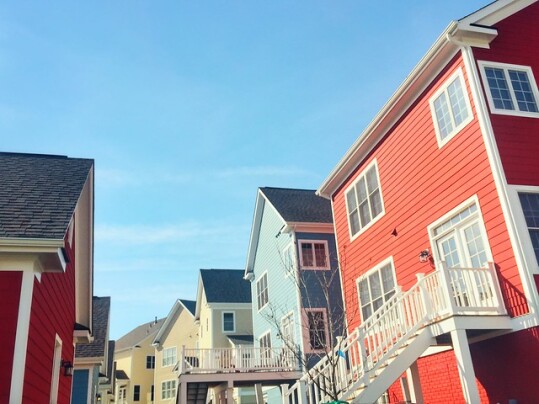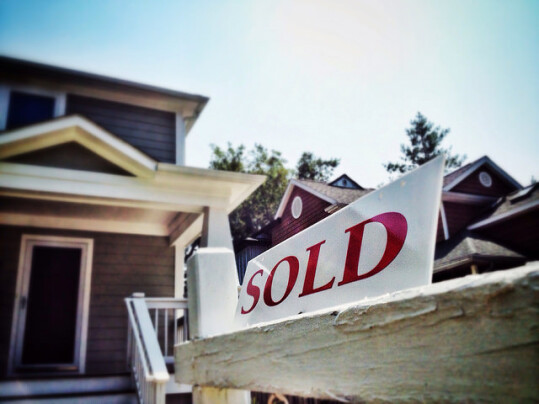Fannie Mae’s Economic and Strategic Research Group releases a forecast each month looking at what’s ahead for the housing market and overall economy. According to their most recent release, there’s reason to be optimistic. For one, the group sees the economy bouncing back this year. The combination of warmer weather and the COVID-19 vaccine rollout will have things picking up starting in spring and continuing into the second half of 2021. Housing activity is also expected to be strong, though it should settle a bit from last year’s accelerated pace. Doug Duncan, Fannie Mae’s senior vice president and chief economist, says the slow down will be modest. “Our latest forecast projects that the continued waning of pent-up demand from last year’s delayed spring home buying season, coupled with a modest rise in interest rates, will likely slow the pace of housing, measured both by the volume of mortgages refinanced and by the pace of home sales,” Duncan said. “However, in our view, a modest slow down in the sales pace is unlikely to prevent year-end 2021 home sales from being higher than 2020.” (source)
Archive for January 2021
The Winter Housing Market Is Still Hot
Typically, during the winter, the homes available for sale are mostly those that have been on the market a while because they’re priced too high or have issues. After all, if you had a great property to sell, you likely wouldn’t want to list it when fewer buyers are active and paying attention. And since the spring market is when things really heat up, the smart move would be to wait. Right? Well, usually – but this year’s market has been different. And, according to one recent analysis, the winter housing market is still seeing a higher-than-usual amount of buyer competition. In fact, the analysis found that 49.7 percent of buyers who bought homes during December faced bidding wars. That’s an improvement from the month before, when it was 56 percent, but still significantly higher than what would be considered normal for the typically slow holiday season. Put simply, the housing market is still hot. That means, winter buyers shouldn’t assume there aren’t great homes available to buy, and sellers shouldn’t assume their aren’t enough interested buyers. (source)
Is Buying Still More Affordable Than Renting?
Home prices have been increasing for a while now. And, with for-sale inventory still well below normal levels, they’ll likely continue to increase. So it’d be easy to get the impression that buying a home in 2021 would be far more expensive than renting a home. But, according to ATTOM Data Solutions’ newly released 2021 Rental Affordability Report, owning a median-priced three-bedroom home is still more affordable than renting a three-bedroom home in 63 percent of the counties included in the report. And that’s despite the fact that home prices have increased faster than rent in 83 percent of those counties over the past year. Todd Teta, chief product officer with ATTOM, says low mortgage rates are the difference. “Amazingly low mortgage rates … are helping to keep the cost of rising home prices in check,” Teta said. “It’s startling to see that kind of trend. But it shows how both the cost of renting has been relatively high compared to the cost of ownership and how declining interest rates are having a notable impact on the housing market and homeownership.” (source)
More Buyers Buying Homes Sight Unseen
How we buy homes has undergone a significant transformation in the past year. The proof is in newly released data that shows a record number of recent home buyers made an offer on a home without having ever visited it in person. The numbers, from an online real-estate portal, show 63 percent of buyers who purchased a home last year made an offer without having seen the property. That’s up from 32 percent one year earlier and 45 percent in July 2020. So what’s driving the trend? Well, mostly it’s the COVID-19 pandemic. The virus caused us all to change the way we do things, including buying a home. After its onset, home buyers became more comfortable using technology like virtual home tours to further explore listings that caught their eye online. It also meant more Americans working from home, which lead home shoppers to look for houses in areas that weren’t as easy to get to for an in-person walkthrough. The combination of pandemic, technological advancement, and remote work means an increasing number of us have had to – or have chose to – take our home search virtual. It remains to be seen, though, whether or not the trend will continue after the virus subsides. (source)
Mortgage Demand Rises 17% After The Holidays
According to the Mortgage Bankers Association’s Weekly Applications Survey, demand for mortgage applications was up 16.7 percent during the first week of January. The increase includes an adjustment for the holidays, but represents a significant spike from the previous week. Refinance activity was up 20 percent, while purchase demand rose 8 percent. Joel Kan, MBA’s associate vice president of economic and industry forecasting, says the numbers contain evidence that first-time home buyers are becoming more active in the market. “Sustained housing demand continued to support purchase growth, with activity up nearly 10 percent from a year ago,” Kan said. “The lower average loan balance observed was partly due to a 9.2 percent increase in FHA applications, which is a positive sign of more lower-income and first-time buyers returning to the market.” Also in the report, average mortgage rates were up slightly from the previous week, with increases seen for both 30-year fixed-rate mortgages with conforming loan balances and loans backed by the Federal Housing Administration. The MBA’s survey has been conducted since 1990 and covers 75 percent of all retail residential mortgage applications. (source)
Home Buyers Say They’re Open To Relocating
Remote work has Americans spreading out and the trend doesn’t look like it’s going anywhere any time soon. More and more, Americans are moving further from city centers and into suburbs and exurbs. In fact, according to one recent survey, two-thirds of participants said they either already had, or would like to, move somewhere within 50 miles of their current home. Some even wanted to move further, with 4 percent saying they moved more than 50 miles away and 10 percent said they’d like to in the future. In short, there are a lot of Americans who are using their newfound ability to work from home as a reason to move elsewhere – whether for extra space, privacy, or to save money. It’s not surprising. It’s also likely to continue. That’s because, just 17 percent of respondents said they thought their work-from-home arrangement would end when the pandemic subsides, while 72 percent said they expect it to be permanent. (source)
Will There Be A Buyer’s Market In 2021?
A buyer’s market means there are more homes available for sale than there are interested home buyers. When this happens, home shoppers have more negotiating power and time to choose – since sellers are less likely to have more than one offer to pick from. This was the case after the housing crash and financial crisis, when the market was flooded with homes but had few buyers, outside of real-estate investors looking to capitalize. So what should we expect from 2021? Well, most likely, not a buyer’s market. The number of homes for sale fell significantly last year and remains low. Conversely, home buyer demand is elevated and has been for a while. That means, more buyers than homes, which leads to competition and higher prices. But while home buyers aren’t likely to find a buyer’s market, they will find conditions softening from last year. With mortgage rates still at record lows and new-home construction improving, experts expect home-price increases to moderate and inventory to begin its recovery. In other words, the 2021 housing market won’t be a buyer’s market, but it should be better than last year. (source)







